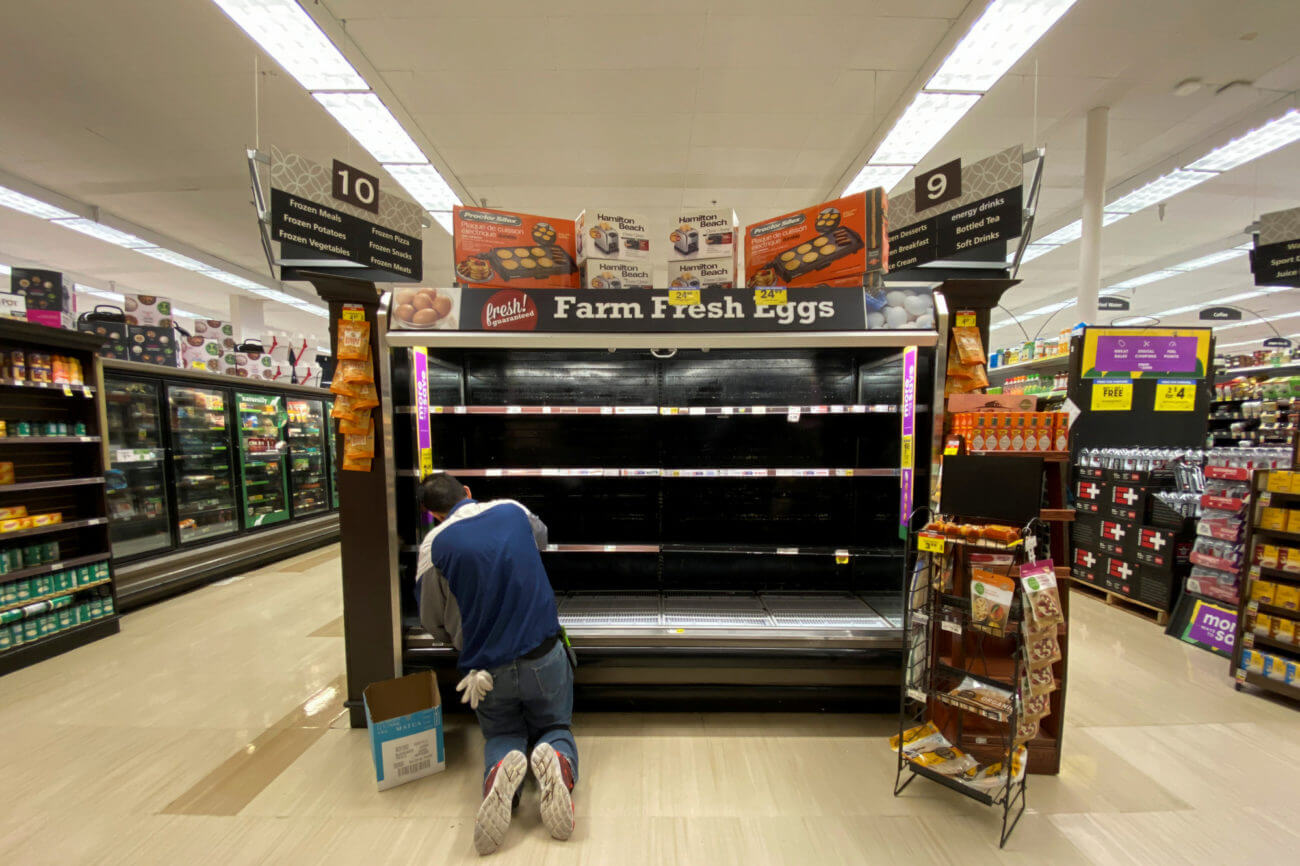U.S. Futures Fall With Threat of Desperate Food Shortage Crisis

- The U.S. stock market is on track to open with a minor correction after a 4% drop on Friday.
- The UN has warned of a serious food crisis as supply chains see lacking resources.
- Retail investors’ stock appetite is expected to decline over the coming weeks as millions of people face unemployment and food shortage.
The U.S. stock market is set to open with a minor pullback, reversing from an initial rebound in pre-market trading. Stocks are expected to see another extremely volatile week as the United Nations warns a global food crisis.
According to the Food and Agriculture Organization of the United Nations, agricultural supply chains across the world are seeing significant pressure due to lacking manpower and limited resources, which potentially may cause food shortages in many regions.
The United Nations’ Food and Agriculture Organization stated:
We risk a looming food crisis unless measures are taken fast to protect the most vulnerable, keep global food supply chains alive and mitigate the pandemic’s impacts across the food system.
The shortage of food and necessities could continue to decrease the appetite of investors towards high-risk investments such as single-stocks, causing the stock market to slump.
Food shortage and record high unemployment make a stock-market disaster
U.S retail investors often turn to the stock market to allocate a relatively high percentage of their regular income to retirement and 401(k) plans.
While individual investors allocate their funds into the stock market often with a long-term investment thesis in mind, when cash-buffers of small businesses start to dry out and millions of people begin to get laid off, the only alternative to bank loans is cashing out from retirement and 401(k).
Throughout March, institutions drove most of the sell-off in the stock market. As CCN.com reported, over the next three to four weeks, JPMorgan strategist Nikolaos Panigirtzoglou said that sovereign wealth funds are estimated to sell $75 billion worth of stocks after having dumped $150 billion.
If the institution-driven correction of the U.S. stock market is quickly followed up with a large sell-off from retail investors in the short-term, it may trigger another major pullback in the short-term.
In the U.S. and U.K., many densely populated cities have seen local supermarkets and grocery stores run out of vegetables, meat, and even canned products as individuals rush to stock up as food as possible.
The rise in panic among the general population, as the United Nations emphasize, will inevitably decrease the momentum of the stock market.
Countries that have passed the peak of the coronavirus pandemic such as China, Singapore, South Korea, Taiwan, and Vietnam are not seeing shortages of food and necessities in the likes of alcohol and hand sanitizers.
But, if the concerns of the United Nations worsen and the pressure on the global supply chain mounts as the U.S. and Europe see increased number of new coronavirus cases, there is a possibility that recovering countries in Asia could also struggle deal with lacking supply of basic goods.
Asia stocks unable to rebound
Typically, the U.S. and European stock market see upside movement at market open when stocks in Asia demonstrate a strong recovery.
South Korea’s KOSPI and China’s SSE Composite are both on track to end the day with a near 1% drop, despite decent-size stimulus packages being approved by the two governments.
The stagnancy of Asian stocks could add to the gloomy outlook of the U.S. stock market as it approaches market open with a drop.
This article was edited by Samburaj Das.

Post a Comment
Post a Comment